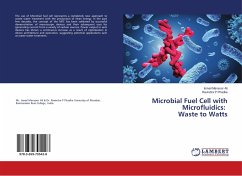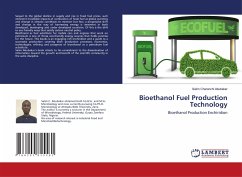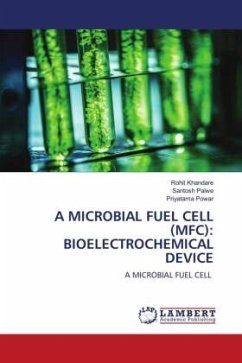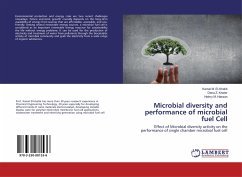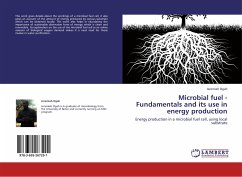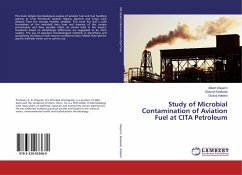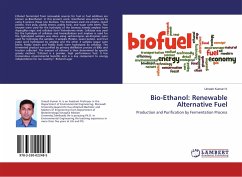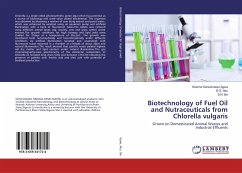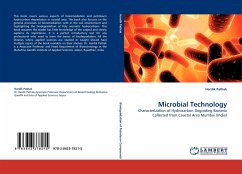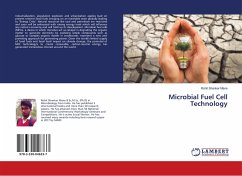
Microbial Fuel Cell Technology
Versandkostenfrei!
Versandfertig in 6-10 Tagen
36,99 €
inkl. MwSt.

PAYBACK Punkte
18 °P sammeln!
Industrialization, population explosion and urbanization applies load on present reticent fossil fuels bringing on an inevitable state globally leading to "Energy Crisis". Natural resources like coal and petroleum are restricted and soon will be exhausted with raising energy insist which will influence any nation's economy and will hold up its development. Microbial fuel cells (MFCs), a device in which microbes act as catalyst in degrading the organic matter to generate electricity by oxidizing simple compounds such as glucose or complex organic matter in wastewater, represent a new and promis...
Industrialization, population explosion and urbanization applies load on present reticent fossil fuels bringing on an inevitable state globally leading to "Energy Crisis". Natural resources like coal and petroleum are restricted and soon will be exhausted with raising energy insist which will influence any nation's economy and will hold up its development. Microbial fuel cells (MFCs), a device in which microbes act as catalyst in degrading the organic matter to generate electricity by oxidizing simple compounds such as glucose or complex organic matter in wastewater, represent a new and promising approach for generating power. Given the world's limited supply of fossil fuels and fossil fuels' impact on climate change, the potential of MFC technology's to create renewable, carbon-neutral energy has generated tremendous interest around the world.



